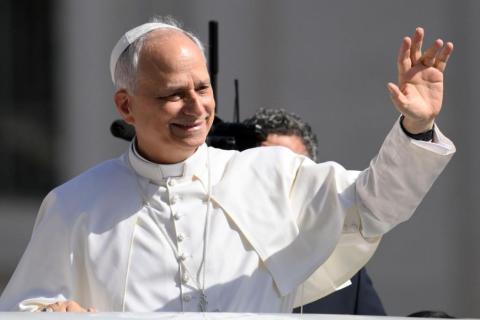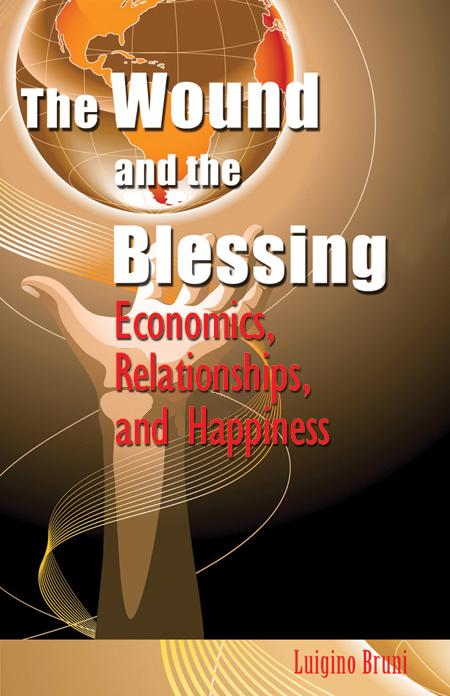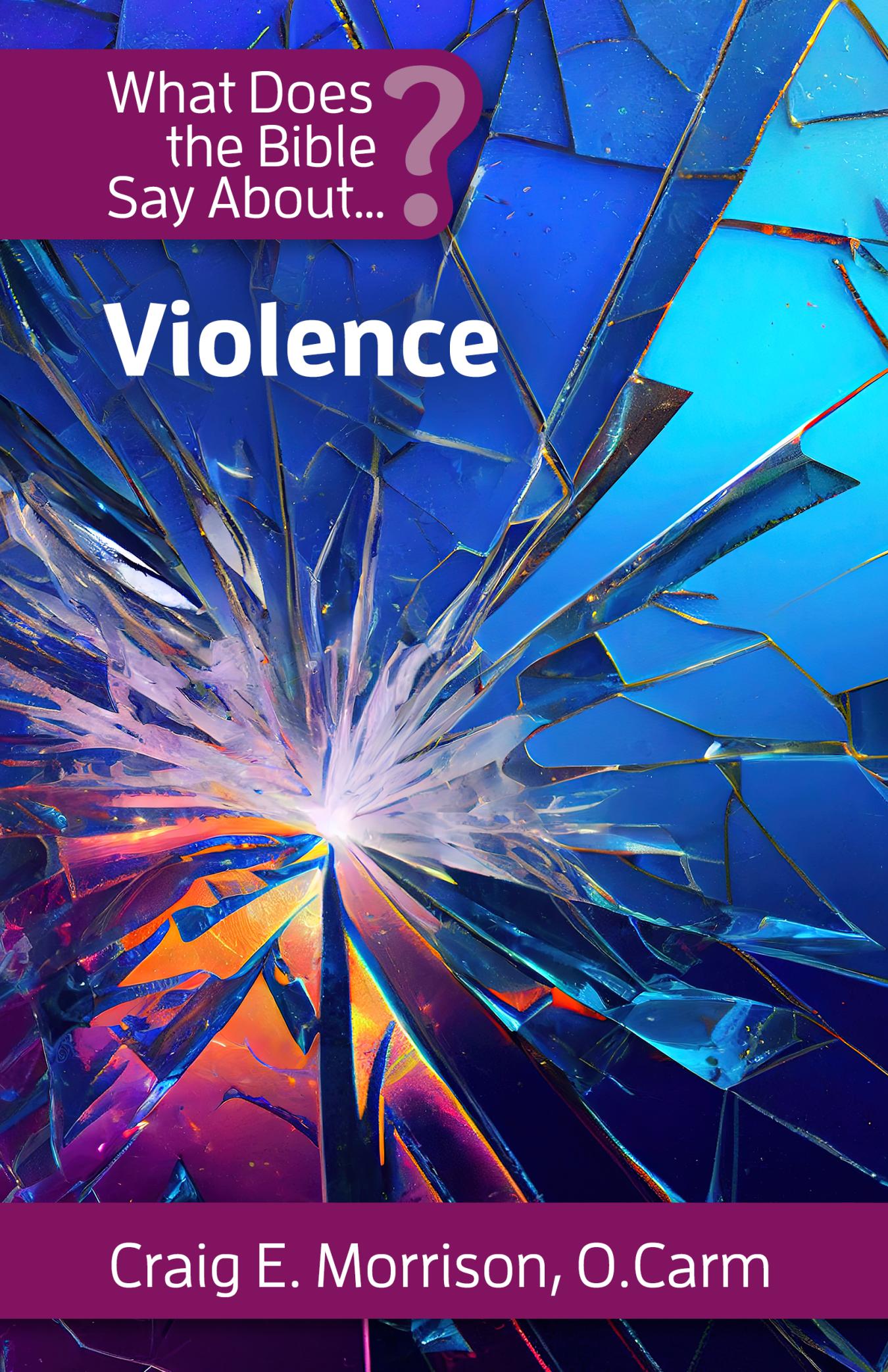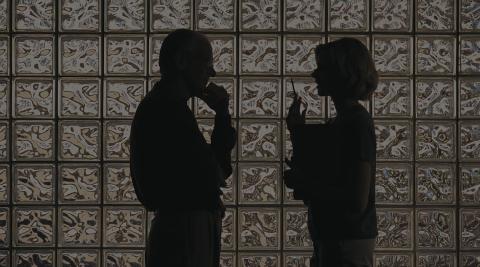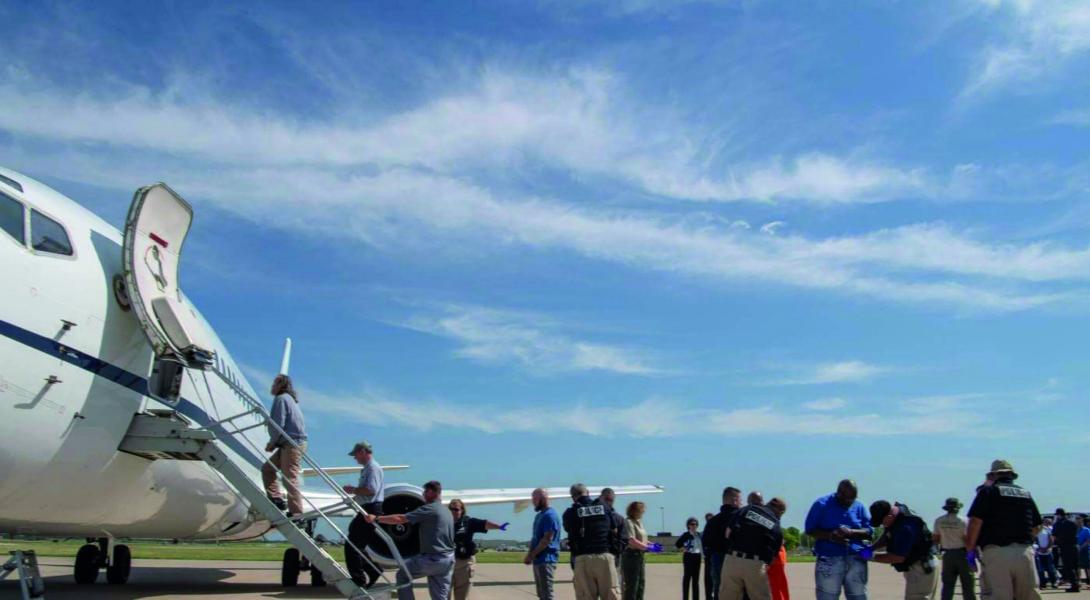
Photo by Prisoner Transportation | U.S. Marshals Service | usmarshals.gov
In June 2013, I was on an airplane from Oklahoma City to Pueblo, Colorado. The aircraft was a specially designed Boeing 737 operated by the Justice Prisoner and Alien Transportation System, commonly known as “CONAIR.”
I was a federal prisoner being transported from the Federal Transfer Center for the Bureau of Prisons in Oklahoma City to the Federal Prison Complex in Florence, Colorado.
Inmates travelling on CONAIR are usually “shackled” together as a pair. On this particular leg of my journey beginning in a holding cell at the transfer center in Oklahoma City, I was shackled with a foreign-born federal inmate known to the outside world as Ramzi Yousef.
Ramzi Yousef was one of the three principal architects of the 1993 World Trade Center Bombing and the nephew of Khalid Sheikh Mohammed, the leader and principal planner for the 9/11 attacks more than 21 years ago. Ramzi has numerous aliases, and more than likely the name Ramzi Yousef is also an alias—he introduced himself to me as Mahmoud.
As divine providence would have it, for about six hours, a retired U.S. Marine Corps Lieutenant Colonel with four combat tours in the Middle East sat and conversed with one of the most notorious terrorists currently in custody in the U.S.
The Marine—that would be me—is a practicing Catholic. Mahmoud, conversely, was a devout Muslim. In our short time together, we had a fruitful conversation about Judaism, Christianity and Islam.
To my surprise, Mahmoud was more versed in the Bible and scripture passages than I was as a cradle Catholic—perhaps not that surprising!
Mahmoud and I led vastly different lives, but in the circumstances of our one and only meeting, we had two things very much in common. First, and most recognizable, we were both convicted criminals.
Mahmoud would be returning to the Administrative Maximum Federal Prison in Florence to serve the rest of his 240 years sentence in isolation—no contact with any human for 23 hours per day. This trip for Mahmoud was a bit of a break in his monotonous life.
I, on the other hand, would be going to the Federal Prison Camp at Florence—not quite a “cake walk,” but better than most jail and prison conditions in the U.S. The Federal Prison Camp would be my home for the next 23 months, until I was released to a halfway house and then home-confinement in May 2015.
The second common thread we shared was not readily apparent to me at that time, but is now so very clear—that day God provided me the special gift of meeting Ramzi and accompanying him back to spend the rest of his life in isolation.
Both Ramzi and I were created in the image and likeness of God, and although Ramzi’s crimes were horrific and senseless, God loves and has always loved him just as much as me—and as much as all of you reading this article.
You may not quite believe in that equity of God’s love, but I believe it with all my human heart!
I was in federal custody for a total of 31 months because I committed a financial crime. While in custody with the Federal Bureau of Prisons, my spiritual life flourished, and I believe that God equipped me to lead a more purposeful, Christ-centered life.
Prison strips you of many of the distractions of everyday life, and in the best case, this can lead to a deeper interior life. In my case, I felt like God was calling me to move into a closer relationship with him.
I became much more intentional in my prayer life, and when available to me, my participation in the sacraments. Prison gave me the opportunity to fully commit to my faith and my relationship with God.
When I was released from prison, I was fortunate to have all the necessary elements to successfully reintegrate back into society. I had a loving family that was waiting for me to come home and support me, as well as a supportive parish family that welcomed me back into our faith community. I had a house, a car, access to health benefits, and a job. These are the key components necessary for anyone who has been in prison to make a successful transition back into society.
It was my spiritual life while incarcerated, and the goals I set for myself for when I would return home, that kept me strong and motivated while in prison.
There is much sadness and despair among the many inmates I encountered. Most inmates that I met had little connection with the outside world, including family, particularly those men that were “locked up” for several decades.
I was incarcerated for a relatively short period of time, and thus I was not forgotten by my family, extended family, and friends. I experienced just how “broken” some of God’s children had become because of their life before incarceration and during incarceration. I met men who had no hope for themselves, and they lived in a static state of “just existing” without a spiritual life or a love for God, their neighbor, or themselves.
Prison, fortunately, is not all darkness. Some men I met had a deep spiritual life with an indomitable faith in God, themselves and others. These men led prayer groups, worship services and spiritual musical performances. These are the men that I stayed close to while incarcerated, and I became one of them.
As I continue to reflect on my prison experience, I believe that the men that lacked direction and were “just existing” were not living a life centered on the virtues of faith, hope and love. In contrast, the men who led purposeful lives in the difficult circumstances of prison embraced these virtues that are the foundation of our spiritual life as a Christian.
We all have the capacity for great love, which includes loving those that appear to be unlovable, like the terrorist Ramzi Yousef. Christ calls us to love everyone, even those that have committed horrific crimes. It has been my experience in the last decade as a prisoner, and now working at the Diocese of San Diego, leading and managing ministries in 24 prisons and jails, that we are all capable of leading virtuous lives.
Jesus asks us to pray and also to visit the imprisoned (Mt 25:36). We can condemn the actions of those that harm others, but we should never condemn them as human persons. Most men and women that go to prison have been harmed in ways that are unimaginable to the average person.
Although most inmates deserve to be in prison for their crimes, we are nonetheless called by Jesus to love each other in a radically transformative way, and to be compassionate and loving toward them. They deserve dignity and love as all God’s creations deserve.





